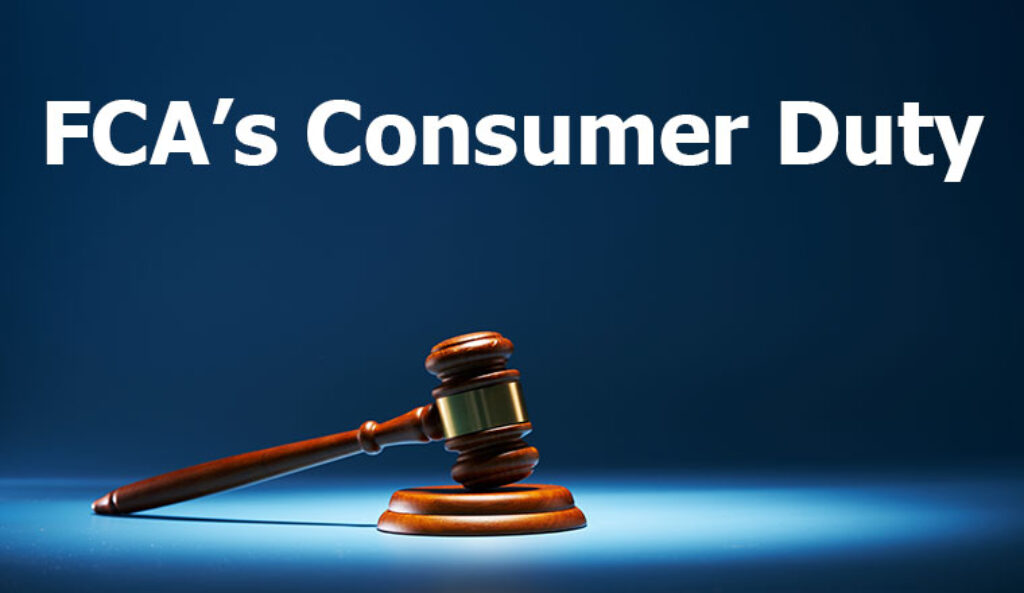
Customer Relationship Management (CRM) systems play an important role in helping businesses comply with the Financial Conduct Authority’s (FCA) consumer protection requirements.
The FCA has introduced rules to ensure that financial institutions adhere to the principles of honesty, transparency and accountability. One recent example is the Consumer Duty, which requires brokers to prioritise their clients’ best interests ensuring fairness and clear communication.
CRM systems assist brokers in managing client interactions as well as have features to ensure that brokers meet regulatory requirements.
This article is all about how a UK mortgage broker CRM system can aid firms to adhere to the FCA’s Consumer Duty guidelines.
Table of Contents
What is Consumer Duty?

Source: callcentrehelper.com
Consumer Duty refers to the FCA’s initiative aimed at guaranteeing that companies offer customers products and services that are suitable, offer good value and ensure positive outcomes by:
- Acting with integrity – Companies must conduct themselves honestly, fairly and professionally in the best interest of their clients;
- Avoiding foreseeable harm – Companies are expected to take steps to prevent foreseeable harm to their clients;
- Supporting customers – Companies need to make sure that customers can make informed decisions by providing clear, timely and relevant information.
To meet these requirements, mortgage and insurance broker firms need to keep adequate customer information, record and track interactions, and ensure compliance.
How a CRM Software Can Help with Compliance?

Source: openaccessgovernment.org
A CRM system is a tool to assist businesses in managing their interactions with existing and potential clients.
For example, a UK mortgage broker CRM system like ClientTree can be extremely useful in staying compliant with the FCA’s Consumer Duty in the following ways:
1. Recording Customer Information
One key feature of a CRM system is maintaining records of customer information and interactions making them easily accessible. This documentation is essential for compliance as it allows brokers to show they have acted in the interests of their clients by following KYC requirements and keeping updated records.
2. Improving Transparency and Communication
The FCA’s Consumer Duty highlights the importance of clear communication.
A CRM system can streamline communication by offering templates for client correspondence, which can be pre-approved to ensure they adhere to compliance standards.
Additionally, CRM systems can streamline communication processes based on data within the system. This ensures that clients get transaction updates, remortgage reminders and appropriate disclosures to aid documenting all interactions and playing a role in compliance audits.
3. Risk Management
A CRM software can assist brokers in managing risks by noting vulnerabilities and potential red flags during interactions. This approach helps prevent foreseeable harm and aligns with the FCA’s Consumer Duty guidelines.
4. Personalised Client Service
Consumer Duty requires firms to empower clients in making informed decisions. By leveraging a CRM system, brokers can improve their service levels by understanding their clients’ preferences, behaviours and requirements. Based on this knowledge, brokers can customise their recommendations to suit individual client needs, are appropriate and offer fair value.
5. Regulatory reporting

Source: investmentweek.co.uk
Some UK mortgage broker CRM systems can also be tailored to facilitate reporting obligations such as the bi-annual FCA report.
Regular compliance checks enable brokers to proactively meet the required standards and showcase their dedication to fulfil FCA requirements.
6. Automating Routine Tasks
To streamline a broker’s workflow, CRM systems can help automate tasks that are often time-consuming and prone to human errors like typos.
CRM systems can automate data input, appointment scheduling and setting reminders for follow-ups. By giving brokers more time to focus on their clients, CRM systems contribute to improving the quality of client service.
Summary

Source: new.albanianuniversity.edu.al
In an industry where compliance is crucial, a CRM system for UK mortgage brokers provides a solution for managing client relationships while meeting the FCA’s Consumer Duty standards.
Through recording appropriate client details and transactions, promoting transparency, mitigating risks and automating tasks, CRM systems empower brokers to act in the best interests of their clients, prevent foreseeable harm and facilitate informed decision making.
Embracing a CRM system not only boosts operational efficiency, but also plays a vital role in ensuring ongoing compliance and fostering trust with clients.








